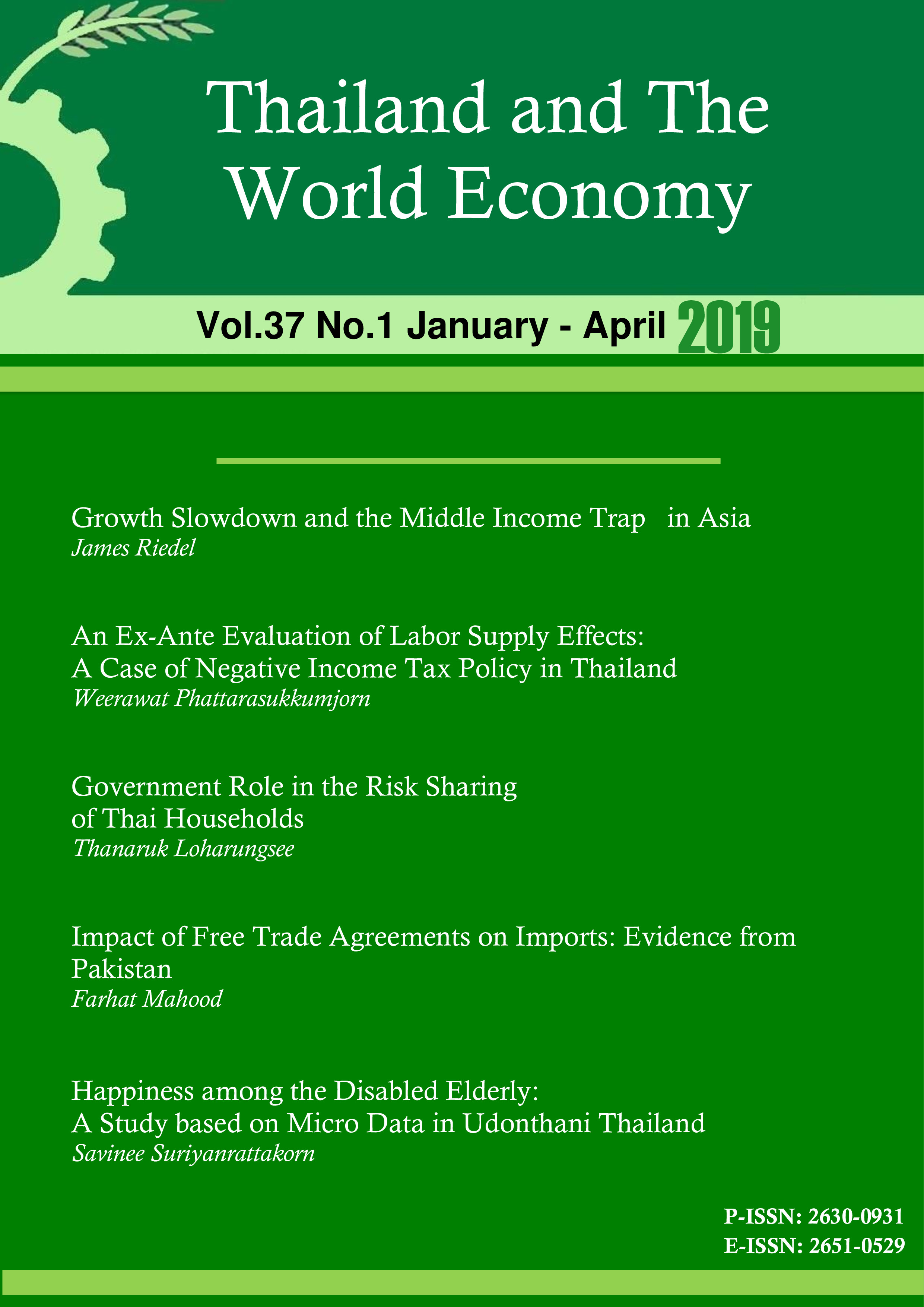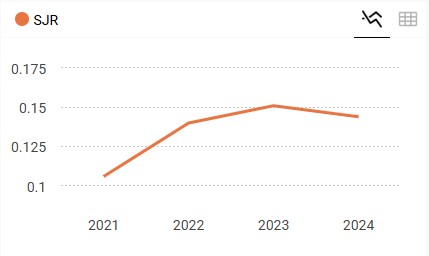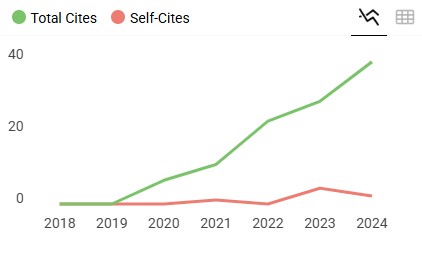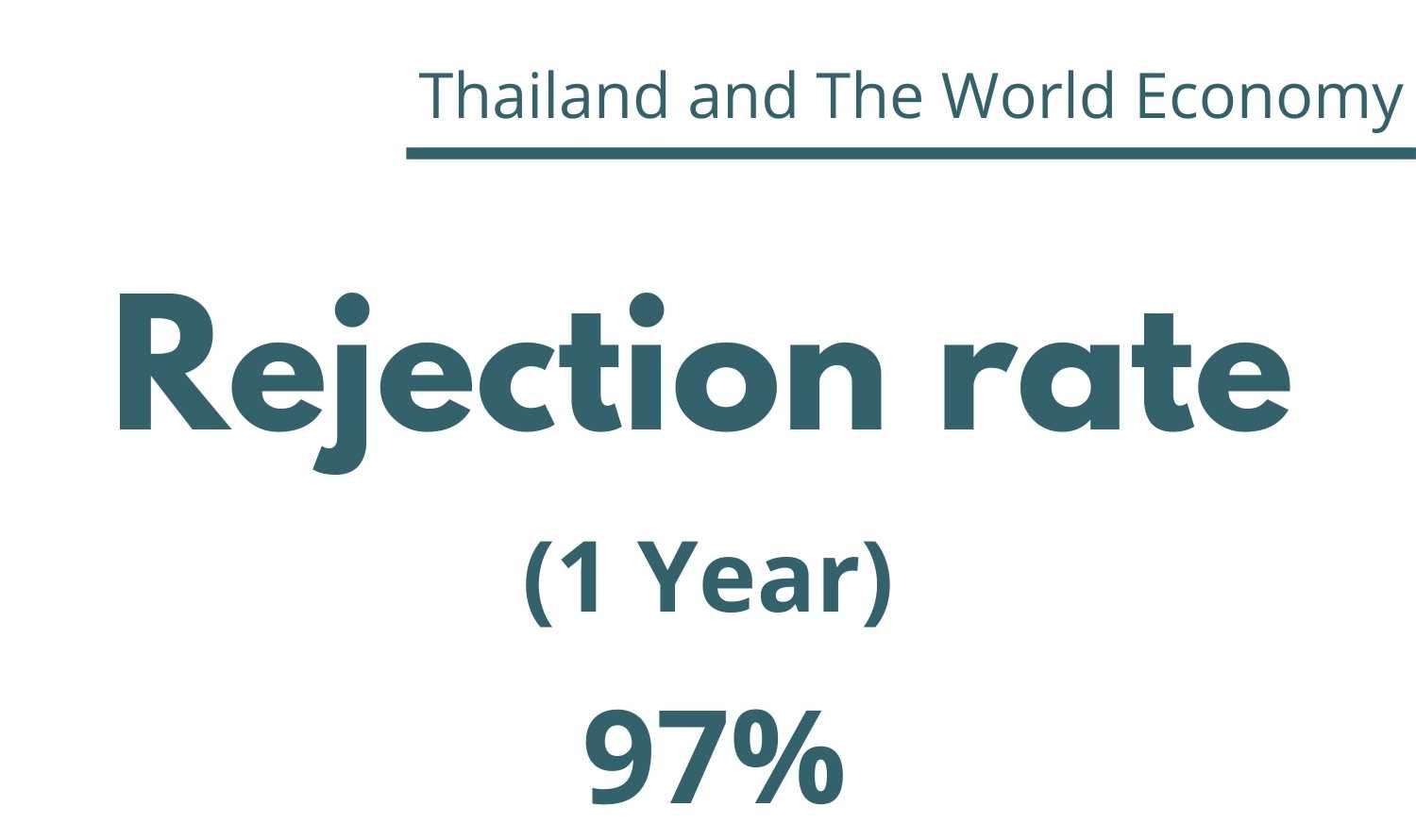Happiness among the Disabled Elderly: A Study based on Micro Data in Udonthani Thailand
Keywords:
happiness, disability, elderlyAbstract
The objective of this study is to investigate the factors affecting the happiness of the elderly having to cope with disabilities. The panel data set consists of 246 home- and bed-bound elderly citizens drawn from the Thai Health Promotion Foundation data for the years 2015 and 2016 and a random effects model is used to analyze happiness-related equation. The results show that happiness increases with 1) household income, 2) level of health status of the respondent measured by the Barthel Index for Activities of Daily Living (ADL), and 3) satisfaction with the long-term care program or home visits implemented by the government, whereas happiness decreases with living alone. Furthermore, despite the fact that satisfaction with government care programs affects the happiness of the elderly, the frequency of home visit service variable does not significantly affect happiness at all. It can be implied that if happiness is a principle goal driving the governments’ long-term care policy, the quality of care seems to be more important in terms of the happiness of the disabled elderly than the regularity of such services
References
Bamrungsakungsawat, O. (2016). The manual of long-term health care management for disable elderly in the national health insurance program: Fiscal year 2016 budget. Bangkok, Thailand: National Health Security Office.
Bhongmakapat, T. (2011). Happiness development for the modern society. Bangkok, Thailand: Sangsan Books.
Chaiyo, W. (2012). The concept of happiness in the elderly: A case of Ban Wai Tong Niwet. Journal of Human Sciences, 13(1), 16-30.
Blanchflower, David G., & Oswald, Andrew J. (2008). Is well-being u-shaped over the life cycle?. Social Science & Medicine, 66(8), 1733-1749.
Easterlin, R. A. (2001). Income and happiness: Towards a unified theory. The Economic Journal, 111(473), 465-484.
Gray, RS., Kramanon, R., & Thapsuwan, S. (2008). The determinants of happiness among thai people: Some evidence from Chai Nat and Kanchanaburi. Thammasat Economic Journal, 26(2), 72-87.
Gray, RS., Rukumnuaykit, P., & Kittisuksathit, S. (2006). Happiness and sustainability: Seniors life safety. Retrieved from http://www.ipsr.mahidol.ac.th/IPSR/ AnnualConference/ConferenceII/Article/Download/Article09.pdf.
Greene, W.H. (2002). Econometric Analysis. Upper saddle river, N.J: Prentice Hall.
Gwozdz, W., & Sousa-Poza, A. (2009). Ageing, health and life satisfaction of the oldest old: An analysis for Germany. Social Indicators Research, 97(3), 397–417.
Kramanon, R., and Gray, RS. (2015). Differentials in happiness among the young old, the middle old and the very old in Thailand. Journal of Population and Social Studies. 23(2), 180 – 192.
National Statistical Office. (2014). The 2014 survey of the older persons in Thailand. Bangkok, Thailand: National Statistical Office.
National Health Security Office (NHSO). (2016). The manual of long-term health care management for disable elderly in the national health insurance program. Bangkok, Thailand: National Health Security Office.
Oswald, Andrew J. (1997). Happiness and economic performance. The Economic Journal, 107(445), 1815-1831.
Rukumnuaykit, P., and Pholphirul, P. (2007). Population and social 2007. Nakhonpathom, Thailand: Population and Social Studies.
World Bank. (2016). Old age society in Thailand. Retrieved from http://www.worldbank.org/th/news/press-release/2016/04/08/aging-in-thailand---addressing-unmet-health-needs-of-the-elderly-poor.










